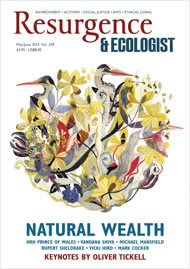The greatest British poetic revolutionary of the 19th century was Percy Bysshe Shelley, and of the 21st it is Heathcote Williams. The latter has now written polemical poetry about the polemical poetry of the former! Both meet in the space that is Oxford, Shelley occupying it briefly as an undergraduate, and Williams more permanently in his current maturity. Williams’ book is an angry elegy to Shelley and a diatribe against Oxford’s rejection of her greatest rebel. The stuffy dons expelled the beautiful firebrand on the publication of his leaflet The Necessity of Atheism, banishing him from Oxford on 25 March 1811.
These were the extraordinary years of the Regency – of British poetic and prose genius, of great feats of arms, and of extraordinary political suppression. It was a period of Luddite riots, agricultural depression, bread shortages, widespread unemployment and poverty. The assassination of the prime minister, Spencer Perceval, would take place only seven weeks after Shelley’s expulsion; the massacre of peaceful demonstrators at ‘Peterloo’ would be in 1819, and the attempt to murder the whole Cabinet over dinner in my thrice-great-grandfather’s house in Cato Street would occur in 1820.
The nation teetered on the brink of revolution. Both the French and the Americans had shown us the way, and the pressure would not begin to lift until the Great Reform Act of 1832. In consequence, Williams explains, the Oxford of Shelley’s day was a craven place of nervous orthodoxy:
“It’s 1810 and college battlements guard
Those living off the state’s superstition:
Oxford swarms with clergy and mitred bishops with crooks
Herding the University’s sheepish flock.”
My own ancestors, Lord President Dudley Ryder and Perceval’s home secretary, my own namesake Richard Ryder, were, no doubt, part of this uneasy Tory establishment that sent agents provocateurs to Manchester and spies to Oxford, while others of my kinsmen tried to make amends – such as John Calcraft, who voted against his Cabinet colleagues in support of parliamentary reform and was eventually, or so it seems, murdered by political reactionaries.
We should not forget that this was the political background to the Britain of Shelley, Byron, Jane Austen, William Wordsworth, Samuel Taylor Coleridge and Sir Walter Scott, to the Industrial Revolution and the rapid expansion of the British Empire. The two great poetic revolutionaries of the period were undoubtedly Shelley and Byron, the latter seen by Karl Marx as the more bourgeois of the two.
But Shelley was not only a political revolutionary who campaigned through the medium of poetry: he was also a revolutionary of ideas and emotions. His multiple relationships with girls in their early and middle teens, by whom he had several children, would still be regarded as revolutionary today and could have him arrested by Oxford’s modern police. His pioneering and intelligent atheism, however, would have been fashionable in the present century, as would his passionate concern for the rights of animals.
Most striking, perhaps, was Shelley’s dynamic advocacy of science; he arrived in Oxford armed with electrical devices of almost every sort then available. This was several years before the great electrical discoveries of Michael Faraday, and I wonder whether, had Shelley survived his 30th year, his career would have taken him in that direction. He saw electricity, quite rightly, as the great force of the future, and it emerges in the story of Frankenstein, written by his wife Mary. Indeed, it has been mooted that Shelley himself was the model for Dr Frankenstein in the Gothic tale she published in 1818.
Shelley was, of course, a sublime poet. But he was more than that. Not only did he have lyrical genius, but he also had supreme intelligence and he used this intellectual power to debunk cruelty, injustice, religion, monarchy, matrimony and meat-eating. He was the cutting edge of new thinking.
After his expulsion from Oxford, Shelley briefly lived in Wales, where he was shot at by shepherds when he tried to rescue their sheep from suffering. He would have approved of the Oxford Group in the early 1970s, who led the modern international animal rights revolution. Like Shelley, they were pamphleteers and campaigners for compassion.
Heathcote Williams is our leading polemical poet and has published classics in defence of whales, elephants and dolphins. Here he lucidly pays tribute to another who championed revolutionary and humane ideas through poetry.







